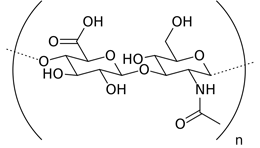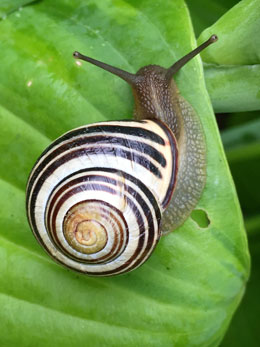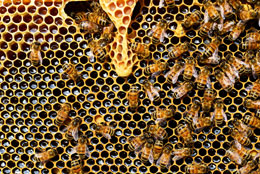3 Asian skincare ingredients to watch out for

The Asian skincare industry has seen rapid growth around the world in recent years, as any beauty enthusiast is bound to have come across Korean and Japanese beauty trends online. And while the skin-whitening obsession in Asia is still alive and kicking, more and more products for a wide range of beauty purposes — from boosting hydration to lessening wrinkles — have been made available. With these come some interesting ingredients that just might be what your skin needs. To get you up to speed, here's a list of 3 Asian skincare ingredients to watch out for:
Hyaluronic Acid
 While it may be a little concerning to even consider putting acid on your skin, hyaluronic acid isn't like other commercially available acids. The Telegraph explains that Hyaluronic acid is actually a polysaccharide, basically making it a very large sugar. Another interesting thing about it would be that hyaluronic acid actually occurs naturally within the human body but naturally lessens over time. Hyaluronic acid's function in the body is to hold moisture within the skin cells, as one molecule of Hyaluronic acid can hold up to 1000 times its own weight in water.
While it may be a little concerning to even consider putting acid on your skin, hyaluronic acid isn't like other commercially available acids. The Telegraph explains that Hyaluronic acid is actually a polysaccharide, basically making it a very large sugar. Another interesting thing about it would be that hyaluronic acid actually occurs naturally within the human body but naturally lessens over time. Hyaluronic acid's function in the body is to hold moisture within the skin cells, as one molecule of Hyaluronic acid can hold up to 1000 times its own weight in water.
Given this, you can see why this ingredient is mostly used in moisturisers, but can also be injected directly into your skin to fill and plump it up. The Strategist's review of Seoul Ceuticals' Vitamin C Hyaluronic Acid Serum demonstrates the efficacy of the ingredient, as it's known to be an unabrasive brightening serum with anti-ageing properties. This makes it easy to integrate into most, if not all, types of skincare routines.
Snail Mucin
 Snail mucin is the thick viscous fluid that snails excrete as a defence mechanism. While it may sound odd to rub snail gel all over your face, the practice can actually be traced back to a rather interesting source. ABC News' report on snail mucin in skincare products reveals that the practice started in ancient Greece, and was later rediscovered by Chilean farmers who noticed that their hands got softer after handling snails found in the field.
Snail mucin is the thick viscous fluid that snails excrete as a defence mechanism. While it may sound odd to rub snail gel all over your face, the practice can actually be traced back to a rather interesting source. ABC News' report on snail mucin in skincare products reveals that the practice started in ancient Greece, and was later rediscovered by Chilean farmers who noticed that their hands got softer after handling snails found in the field.
Today, brands such as Tony Moly and Missha incorporate the ingredient in their moisturisers, masks, and makeup creams. The reason for this is that snail mucin contains glycoprotein enzymes and peptides, both of which are great for your skin. As a testament to the effectiveness of snail mucin, Pretty Me’s review of the Snail White Whipp Soap points out that this super ingredient is effective for virtually any skin type. Snail-based products do a good job of evening out skin tone and brightening the face. The substance also helps restore firmness and moisture, without feeling sticky.
Bee Glue
 Propolis, or more commonly known as bee glue, is a gel-like resin substance collected by bees to seal, sterilize, and protect their hives. This substance acts as an anti-bacterial that aids in cell renewal, giving it anti-ageing properties. Bee glue also has honey's eternal shelf life, as its antibacterial properties, naturally low pH, and healthy sugar content all lead to a good that virtually never goes bad. Other benefits attributed to bee glue are its soothing properties, perfect for when your skin has been exposed to harmful UV rays for a little too long.
Propolis, or more commonly known as bee glue, is a gel-like resin substance collected by bees to seal, sterilize, and protect their hives. This substance acts as an anti-bacterial that aids in cell renewal, giving it anti-ageing properties. Bee glue also has honey's eternal shelf life, as its antibacterial properties, naturally low pH, and healthy sugar content all lead to a good that virtually never goes bad. Other benefits attributed to bee glue are its soothing properties, perfect for when your skin has been exposed to harmful UV rays for a little too long.
These same soothing properties are also what gives bee glue its regenerative qualities, perfect for smoothening and softening skin. Indeed, Byrdie's review of Tosowoong Propolis Sparkle Ampoule hits the nail on the head by highlighting how bee glue's regenerative and restorative properties can make your skin more radiant and healthy. Bee glue is more than just your typical skincare trend — it's a gentle, unassuming ingredient that can do wonders for your skin.









